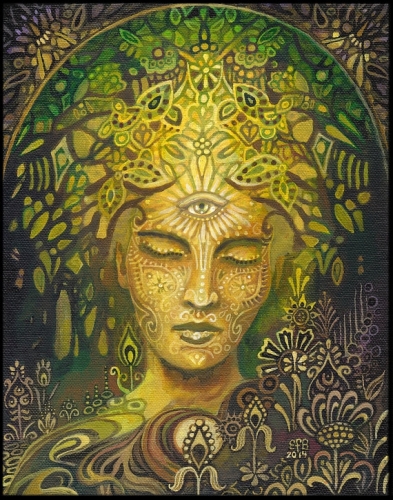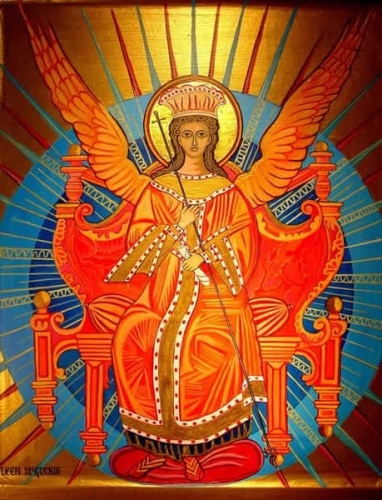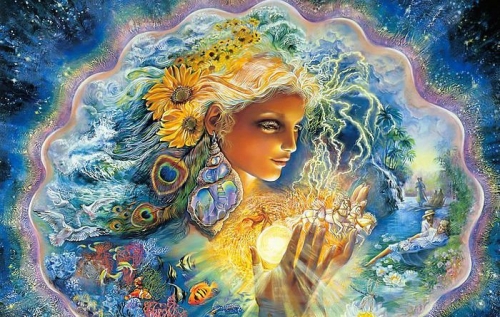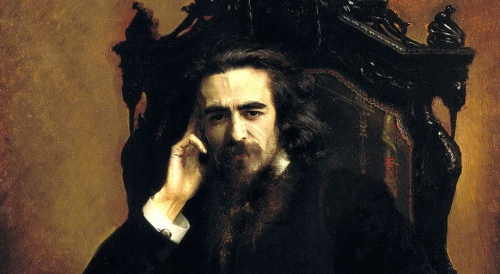vendredi, 10 novembre 2017
Lovers of Sophia

Lovers of Sophia
Jason Reza Jorjani
Ex: https://manticorepress.net
Introduction to Lovers of Sophia
 This mammoth volume is a collection of twenty distinct philosophical reflections written over the course of a decade. Most of them are essays, some almost of book length. Others would be better described as papers. A few are well structured notes. There is also one lecture. A magnum opus like Prometheus and Atlas does not emerge from out of a vacuum, and an alternative title to these collected works could have been “The Path to Prometheus and Atlas.” While there are a few pieces that postdate not only that book but also World State of Emergency, most of the texts included here represent the formative phase of my thought. Consequently, concepts such as “the spectral revolution” and “mercurial hermeneutics” are originally developed in these essays.
This mammoth volume is a collection of twenty distinct philosophical reflections written over the course of a decade. Most of them are essays, some almost of book length. Others would be better described as papers. A few are well structured notes. There is also one lecture. A magnum opus like Prometheus and Atlas does not emerge from out of a vacuum, and an alternative title to these collected works could have been “The Path to Prometheus and Atlas.” While there are a few pieces that postdate not only that book but also World State of Emergency, most of the texts included here represent the formative phase of my thought. Consequently, concepts such as “the spectral revolution” and “mercurial hermeneutics” are originally developed in these essays.
In addition to revealing the context for the genesis of specific concepts that I have developed, these reflections also have certain stylistic features and central concerns that, when taken together with my two published books, make it possible to discern the key characteristics of my philosophical standpoint. For example, I reject any subdivision of Philosophy into distinct and specialized fields such as Ontology, Epistemology, Aesthetics, Ethics, and Politics. The main reason that I have included “An Introductory Lecture on Ethics” is because it exemplifies my integral conception of what it means to philosophize. From the essay, “Philosophy, Science, and Art” it becomes clear that beyond a rejection of specialization within Philosophy, I go so far as to argue against any fundamental differentiation of Philosophy from the arts and sciences. It is my contention that philosophers (such as Aristotle and Descartes) determine the deep structure of successive scientific paradigms, at least at their inception, and that philosophical thought can take place in an artistic and literary medium. This is why several of the pieces here are interpretations of literary or cinematic works, such as The Trial of Franz Kafka, or two films based on the writings of Philip K. Dick. In my view, aesthetic intuition is a necessary (but not a sufficient) condition for being a philosopher.
While on the subject of what it means to be a philosopher, let me point out that it is only with the publication of these essays that I reconcile myself to making the claim that I am one. Thus far I have described myself only as “an aspiring philosopher”. In addition to the aforementioned “Introductory Lecture on Ethics” and reflection on the relationship between “Philosophy, Science, and Art”, my diatribe “Against Perennial Philosophy” makes it quite clear that I do not recognize the majority of academics in the field of Philosophy as “philosophers” even though they disrespect the great thinkers of the past by referring to themselves as that. “Against Perennial Philosophy” actually disqualifies the majority of so-called “philosophers” in the Canon as well, and it suggests that there has hardly been any philosophy worthy of the name outside of the Indo-European civilizations (including Buddhist Asia).
A philosopher is someone whose thought engages with fundamental questions concerning Truth, Beauty, and Justice, in a way that leads to the discovery of concepts with a potential to catalyze scientific and political revolutions. The philosopher’s ethics and politics must be grounded on his ontology and epistemology, and, as I have already suggested, this integral thought has to be guided by an aesthetic intuition comparable to that of the most extraordinary geniuses in literature and the arts. This is a definition that disqualifies scientists as innovative as Khayyam, Galileo, and Newton, political theorists like Cicero, Rousseau, and Strauss, or artists such as Ferdowsi, Dostoyevsky, and Kubrick. That I reflect philosophically on the brilliant works of Franz Kafka and Philip K. Dick, does not mean that I consider them philosophers. On this definition, there are probably not many more than two dozen philosophers known to recorded history. (This qualifier “recorded history” is important since I am certain that we have lost a great deal of legitimate philosophy to vicissitudes such as the burning of the Library of Alexandria or the Islamic Conquests of Iran and India.) On account of the development of at least four original concepts thus far, namely the “spectral revolution” and “mercurial hermeneutics” in Prometheus and Atlas, the concept of a “world state of emergency” in the book by that name, and the terrifying idea of a “destructive departure in worldview warfare” from the essay “Black Sunrise” that appears in this volume, I now see myself as (just barely) having joined the ranks of these fellow lovers of Sophia.

The backbone of this collection is constituted of critical, and in some cases iconoclastic, contemplation of the work of my predecessors in the Canon: Plato, Aristotle, Spinoza, Kant, Hegel, Nietzsche, James, and Wittgenstein. The interpretation of Plato ventured in “The Pharmakon Artist” and that of Aristotle in “Building the Theater of Being” are totally original and extremely destabilizing to received tradition. The essay on Hegel’s “Paranormal Phenomenology”, which also adopts and adapts certain ideas from Maurice Merleau-Ponty, is the point of origin for the concept of “mercurial hermeneutics” further developed in Prometheus and Atlas.
But it is by no means the case that these philosophical reflections are limited to the Western Canon. Rather, one of the distinguishing characteristics of Prometheus and Atlas as well as World State of Emergency is the cosmopolitan scope of my thought. My “Critique of Shiite Esotericism” and exegesis of “Verse 4:34” from the Quran, are incisive philosophical critiques of Islam. They were instrumental scholarly exercises on the way to the anti-Islamic argument of World State of Emergency. Essays like “Serpent Power of the Superman”, where I argue that Hindu Tantra is more Nietzschean than Nietzsche, reaffirm that I recognize no distinction between ‘Western’ and ‘Eastern’ philosophy. Although most of what could be called philosophical thought in the East is Indo-European or Aryan in origin, my “Notes on the Tao of Bruce Lee” suggest that Aryan traditions like Buddhism can be augmented by assimilating elements of non-Aryan traditions such as Taoism. As I argued in both Prometheus and Atlas and World State of Emergency, I see this innovatively evolving cosmopolitan humanism as one of the most distinctive qualities of the Indo-European community. Bruce Lee is Aryan, not Chinese – and I say that mainly on account of the form of his thought, rather than his half-German genetic inheritance or his upbringing in the British colonial culture of Hong Kong.
By the way, as “Trial Goddess” strongly suggests, I also consider Franz Kafka to be an Aryan. Fragmentary as his writings may be, in my view Kafka is the peak of German literature – or rather the cathedral gloom of its most horrifyingly abyssal depth. How integral Jews have been to defining the most Aryan of attitudes and ideas in the Western Canon is also clear from the overwhelming influence of Baruch Spinoza on the development of the core structure of Nietzsche’s thought, which I trace in the essay, “Spinoza, the Untimely One.” Nietzsche, the progenitor of the Aryan Superman, himself recognized the Jews as a world-historical community who, as compared to their small numbers, have demonstrated an incomparable genius in every field of human endeavor, producing some of the most brilliant philosophers, scientists, artists, and mystics.
To the horror of those who consider cosmopolitan Jews to be nothing other than crafters of corrupting golem, in the essay “Prisoners of Property and Propriety” I argue that Karl Marx was a devotee of Prometheus – the most Aryan of all divinities. Moreover, it is in this essay on Marx and other radical Marxists that I first developed the concept of the “spectral revolution” as early as 2010. I synthesized Prometheus and Atlas from this essay with Deleuze’s idea of conceptual personae in “Philosophy, Science, and Art” and Merleau-Ponty’s understanding of spectrality as I interpret it in “Paranormal Phenomenology”, in order to produce the core structure of my magnum opus. Reflecting on Ludwig Wittgenstein’s concept of language games was also instrumental to arriving at the idea of “worlds at war over Earth” in Prometheus and Atlas.

My thinking defies all binaries. More than that – it mocks them. Those who know how to read esoterically, as I know how to write esoterically, ought to have discerned that in Prometheus and Atlas. Hermes or Mercury, the Trickster, is not the book’s villain. Like the figure of The Joker in the essay “Gotham Guardian”, he (or she, another false binary) is an agent of chaos and a de-structuring force required for any new world order. This is what the Alt-Right never understood about Pepe, the incarnation of the ancient Egyptian god Kek. Of all the figures in the leadership of the Alt-Right, I was Kek’s most faithful emissary. Richard Spencer and Daniel Friberg are just the devil’s playthings.
This brings me to “Black Sunrise”, which is by far the most disturbing essay in this collection and the only one in which I develop a new concept beyond those of my first two books. While a superficial reading might leave one with the impression that this is a Fascist manifesto, those who are attentive will find no explicit endorsement. Even more thoughtful people would recognize that the text carries out what occultists call “revelation of the method.” The method in question is the means whereby a global Fascist state could be established on this planet, well within this century. I conceptualize this method as “destructive departure in worldview warfare” – a loose translation from the much more evocative German phrase that I coined to express this idea: Abbauende Aufbruch ins Weltanschauungskrieg. This is not a hypothetical idea.
It is, in practice, the most radical form of psychological warfare imaginable. It presupposes an anarchical existential ontology on the basis of which one can captivate entire societies through the manipulation of false binaries that form the fabric of their weltanschauung. The societies are broken down and then re-conquered by a breakaway civilization, in comparison to which the target societies are simulacra with programmable mytho-poetic variables. I disclose the modus operandi of this occulted Fascist breakaway civilization. But what is more interesting, from a philosophical standpoint, is the way in which this disclosure serves as the context for an exploration of some radical ideas about the nature of space-time and the possible non-linearity of human history reaching all the way back to the antediluvian civilization of Atlantis.
These questions about Time, and specifically whether it is possible for the future to re-write the past, are at the heart of the debate over free will and determinism. One of the oldest philosophical debates, it is central to at least four of the pieces in this book: “Free Will vs. Logical Determinism”, “Rewriting God’s Plan”, “Changing Destiny”, and “An Introductory Lecture on Ethics.” Readers who are familiar with Prometheus and Atlas will know that my argument for Free Will, which draws heavily on the metaphysics of William James, also featured prominently in that text. Consequently, this concern with the metaphysical preconditions of human freedom, conscientious action, and genuine creativity can rightly be seen as one of the most defining characteristics of my thought. These four essays on free will should leave no doubt that I am, above all, a freedom fighter. It is because, like Zarathustra and Buddha before me, I recognize that superhuman gods are real but unjust and deceptively manipulative that I reject democracy as a political form that is capable of protecting the creative power of the precious individual genius. Democracies will always be instruments of these master manipulators, whether through their direct power over the psyche of the ignorant mob or through their dealings with oligarchs who hide behind the façade of democracy in order to outlast other more forthright forms of tyranny.
My philosophical project ultimately represents a rebellion against all forms of tyranny, including the tyranny of the majority. Its goal is the highest human self-consciousness and the most creative self-determination. One reason that this has not been understood is that my detractors, and those who have defamed me, are not capable of seeing past their own noses. At its deepest and most esoteric level, my thought, like that of Plato or Nietzsche, is scaled to thousands of years of human and post-human evolution. People who think that John Rawls is a philosopher and waste their time writing about him are ants laboring in the shadow of my obelisk. What is written in these pages is not for them. It is for you, lovers of Sophia – all of you, across the ages into the distant future, into the lighthouses of a galactic Alexandria. From Zarathustra onwards, we are all flames of the same undying cosmic fire. We are the glowing forge of futures past.
02:46 Publié dans Philosophie, Traditions | Lien permanent | Commentaires (0) | Tags : jason reza jorjani, sophia, sagesse, philosophie, traditionalisme, tradition, traditions |  |
|  del.icio.us |
del.icio.us |  |
|  Digg |
Digg | ![]() Facebook
Facebook
jeudi, 27 octobre 2016
Vladimir Soloviev, du slavophilisme au libéralisme
00:05 Publié dans Philosophie | Lien permanent | Commentaires (0) | Tags : vladimir soloviev, russie, philosophie, philosophie russe, mystique, mysticisme, tradition, sophia |  |
|  del.icio.us |
del.icio.us |  |
|  Digg |
Digg | ![]() Facebook
Facebook



